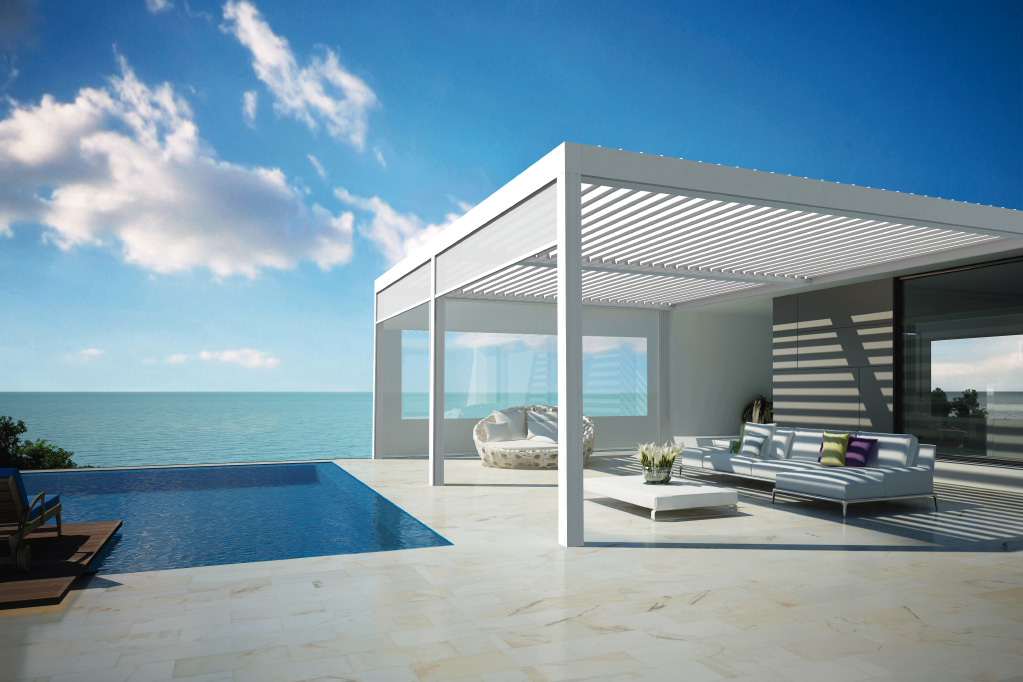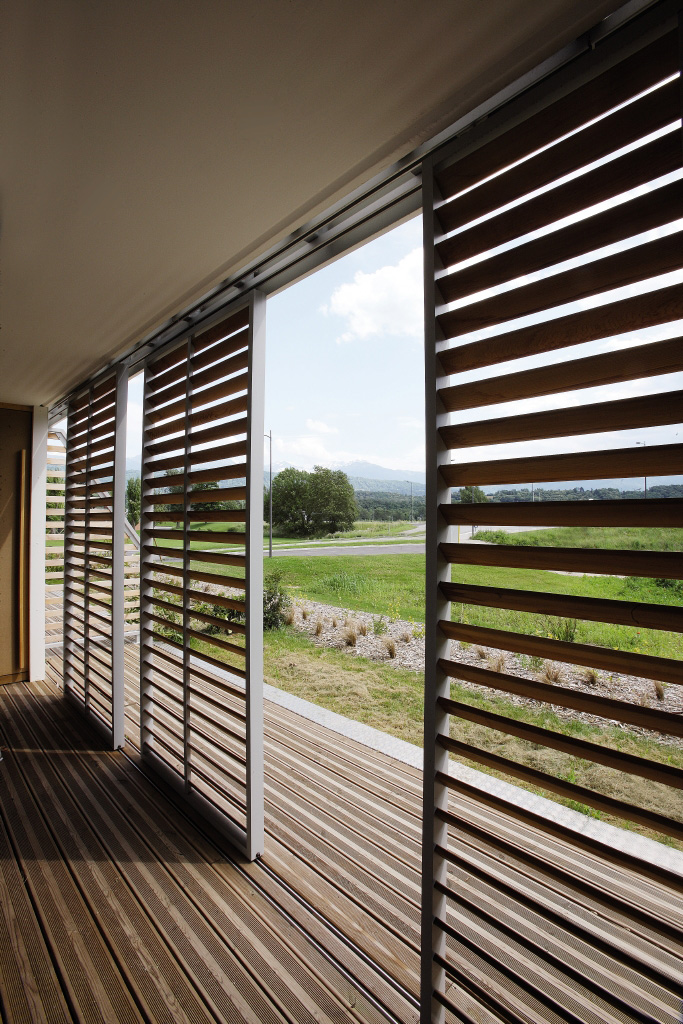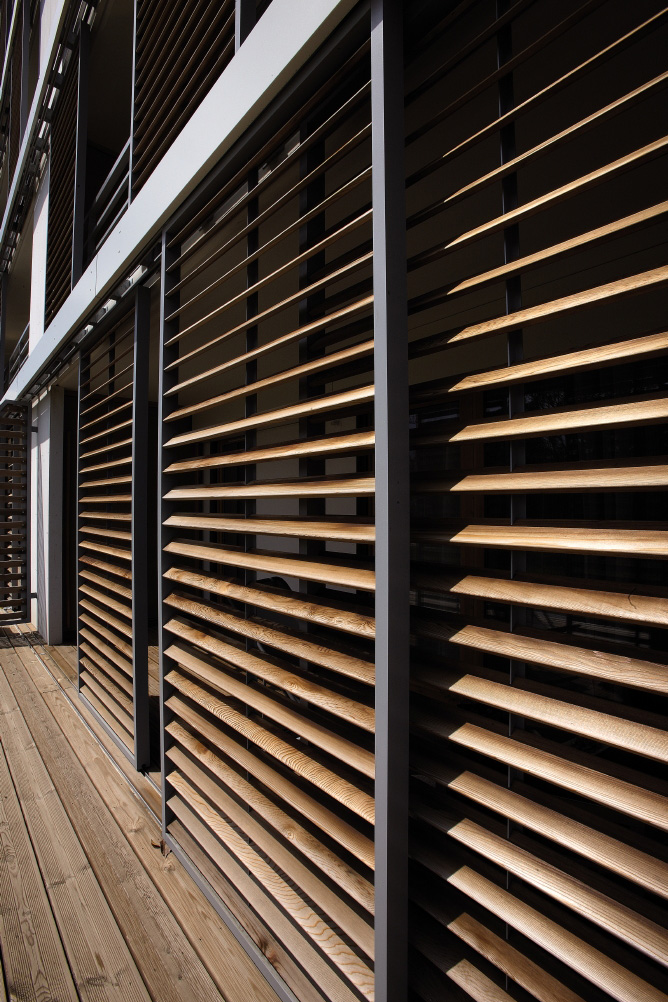Story at a glance:
- Following the Covid-19 pandemic people are spending increased amounts of time outdoors.
- Pergolas offer an outdoor living sanctuary away from the elements while still allowing occupants to embrace nature.
- Louvered roofs, loggia doors, and other features add flexibility and sustainability to outdoor living spaces.
Since the Covid-19 pandemic it’s become clear that more and more people want to spend as much time outside as possible.
Whether it’s relaxing at home, working remotely from nature, or dining outdoors, being outside has become a key way to de-stress for many people. In fact almost 60% of people said they experience an improvement in their mental health and well-being after spending time outside, according to one study.
So what does it take to design or improve outdoor spaces where people can relax, work, dine, entertain—live—while surrounded by nature?
We asked the experts at Renson—an outdoor, sun protection, and ventilation manufacturer focused on creating healthy spaces—what is needed for a comfortable outdoor living experience.
With their advice in mind, use this guide to outdoor living when designing your next outdoor space.
Pergolas
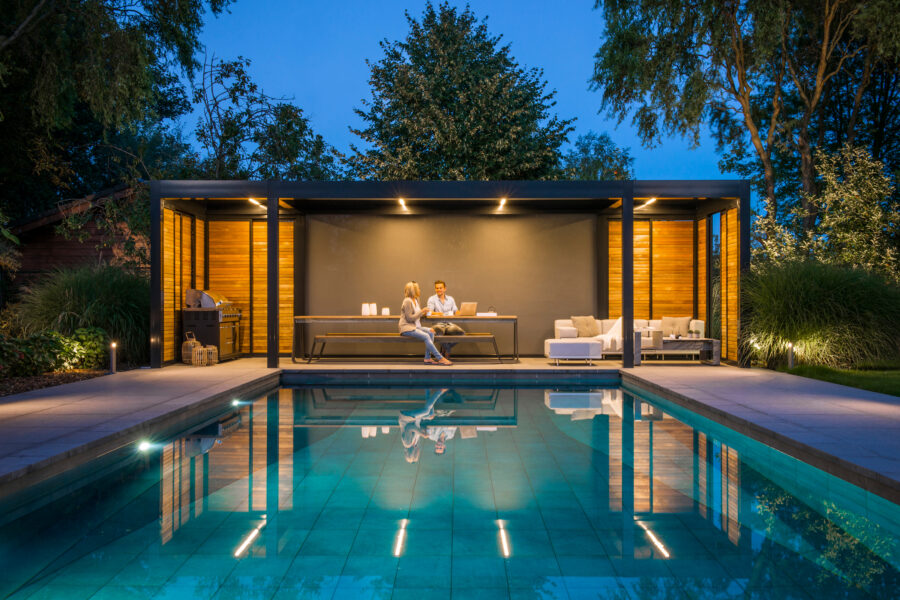
Photo courtesy of Renson
The beauty of an outdoor living space is creating a design that reflects, embraces, and promotes nature. The most challenging part of designing for the outdoors? Also nature.
A successful outdoor living space offers the benefits of nature with the privacy and controllable environment of the indoors. That’s where pergolas come in.
Renson’s design-forward aluminum pergolas offer flexibility to continue modern life outside, any time of the year, in a comfortable, controlled environment that is protected from the elements.
“When it comes down to it, all of us want to have a healthy lifestyle. We all want to spend time outside and remind ourselves that there is something beyond stress and work, that we can take a breath, and everything is going to be OK. But if you don’t have control of your space, it’s going to make it hard for you to go out and have a positive outdoor experience,” says Andrea Zaghi, marketing manager at Renson. “Pergolas offer a reliable experience where, just like you know you can go into your living room, sit on your couch, and not have to deal with it being too hot, cold, or sunny, you can have that same experience—and get fresh air at the same time.”
Louvered Roofs
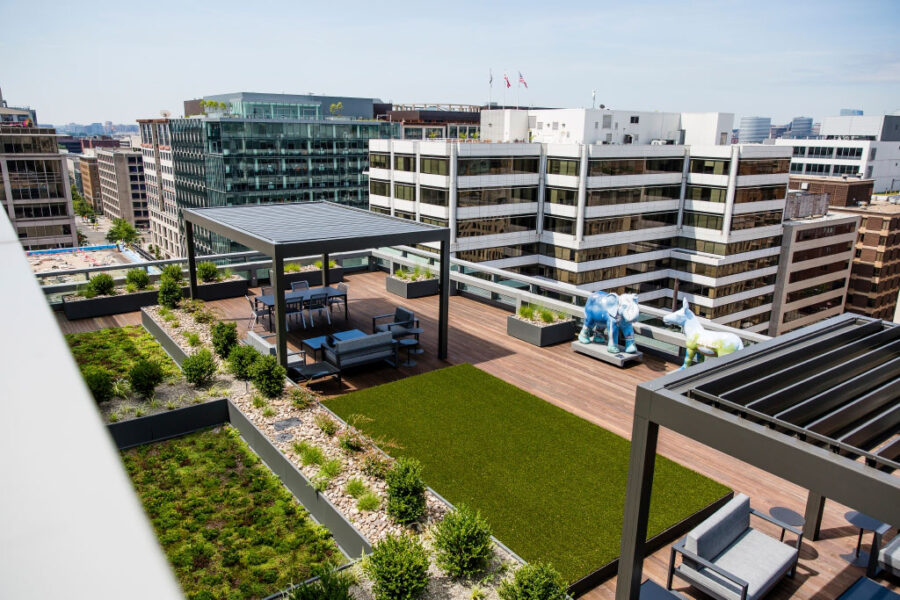
Photo courtesy of Renson
A louvered roof has motorized aluminum blades that can open or close as desired. And though a louvered roof can be a component of a pergola, it can also be put into an existing roof.
“Let’s say you had an outdoor kitchen or outside dining area, and you had an overhang of the roof, so it was covered,” Zaghi says. “You could cut out a section of the overhang and insert louvered roofs, so you could open and close the existing roof to enjoy the sun or block out any weather.”
And block out the weather they can. Renson’s louvered roofs were designed to perfectly protect from the rain, both during and after precipitation. They also operate with a custom motor to eliminate noise and not disturb the outdoor environment.
“There’s so much of the louvered roof market where you’re protected from the rain, and then you open it, and you get downed with disgusting water that ruins your entire patio. It defeats its own purpose,” Zaghi says. “We put a lot of attention into the design, down to the fact that we have bristles and brushes between each of the blades to break down on clanking. We also have additional parts and the pivot beams that stop it from shaking. A lot of thought goes into the little things.”
Shading
Shading is key to lessen a building’s energy efficiency—and for outdoor living spaces, it’s no different. Although many designers may consider shading an indoor tool to block the sun, placing shading mechanisms on the outside of a building or pergola is the best way to limit heat gain.
“Once you put shades on the inside—yes, they may help, but buildings will still get hot because there is still sun coming into the actual window,” Zaghi says. “Lessening the sun’s ability to enter a building by placing shading on the exterior is going to have a dramatic positive effect on your energy consumption. Structural sun protection is a cost-effective way to add duty to your building while being environmentally conscious.”
Loggia Doors
- The sliding panels can be slid in front of the window in warm weather, automatically or manually. Photo courtesy of Renson
- Renson’s Loggia sliding panels are a form of brise soleil shading with the flexibility of outdoor blinds. Photo courtesy of Renson
Loggia sliding doors offer any outdoor space flexibility, privacy, and sun protection. Made from aluminum, Renson’s loggia doors can be customized with adjustable aluminum or wood blades that can let light in to the user’s desire, from completely blocking out sunlight to being see-through.
“From an environmental standpoint, loggia doors are not permanent barriers, so they allow you to enjoy your outdoor living space without giving up privacy,” Zaghi says.
Cladding
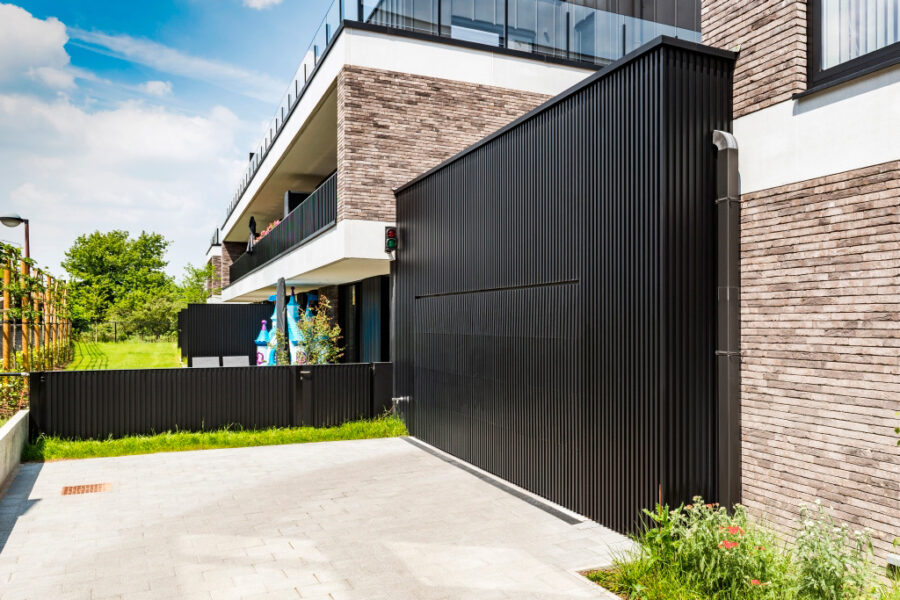
Photo courtesy of Renson
“The value of cladding is about design unity and ventilation,” Zaghi says. “The nice thing about the cladding is that it provides a unified inside/outside style that’s dynamic and flexible while also providing privacy and security without giving up on airflow and light.”
Cladding can be placed on exterior and interior facades and, like the blades on Renson’s louvered roofs and loggia doors, allows an adjustable freeflow of fresh air without having to give up privacy.
Together or separately, all of these outdoor living design elements work together to create luxurious outdoor sanctuaries where people can enjoy nature however they want, from work to play, and whenever they want, no matter the season.

